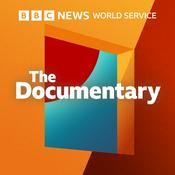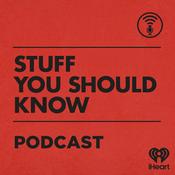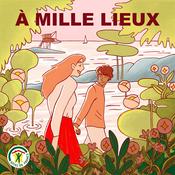401 épisodes

South Africa and the fight against TB
06/1/2026 | 34 min
According to the Guinness Book of World Records, TB is humanity’s oldest contagious disease. It has become something of an afterthought in rich nations, but remains the world’s most deadly infectious disease. In 2024 it killed more than 1.2 million people.South Africa has one of the highest TB burdens in the world, but it has also developed one of the most sophisticated scientific ecosystems for the study of the disease. Clinical trials conducted in the country have been crucial to the innovation of TB treatments, vaccines, diagnostics and prevention strategies.Much of the funding for this research comes from American institutions. But since early 2025, streams of that money have been withdrawn due to a series of decisions by the Trump administration. For Crossing Continents, Sandra Kanthal visits Cape Town and discovers the story of two intertwined landscapes: the people in local communities struggling with the burden of tuberculosis, and the scientific institutions embedded in them trying to tackle the disease - and why at the moment both are struggling.Presenter/Producer: Sandra Kanthal Producer in South Africa: Isa-Lee Jacobson Editor: Penny Murphy Sound Design: James Beard Production Coordinator: Katie Morrison

When Christian nationalists come to town
30/12/2025 | 28 min
People in Gainesboro, Tennessee, have some new neighbours. A conservative developer has bought land just outside the tiny rural Appalachian town, with the aim of forging an 'aligned' community based on shared values like 'faith, family and freedom'. Two of the first people to come to town are controversial Christian nationalists who talk about civilisational collapse and the 'imperative for like-minded Christians to gather and fight'.Their extreme views on women, civil rights and the role of the Church have attracted the attention of critics both locally and further afield. In Gainesboro itself, a resistance movement has formed, and the battle lines have been drawn.This small town of 900 people has become a symbol of the next frontier of America’s political warfare. Is the new development a haven for hate and extremism, with the newcomers looking to take over local power? Or are they just conservative businessmen catering to a renewed demand for the rural, traditional lifestyle? What actually is Christian nationalism? And what is it like for the locals, whose little town has been thrust into the spotlight? Ellie House reports from Gainesboro, Tennessee. Presenter: Ellie House Producer: Mike Wendling Production Coordinator: Katie Morrison Studio Manager: Rod Farquhar Editor: Penny Murphy

Argentina's elusive big cats
23/12/2025 | 28 min
After decades of extinction, wild jaguars are once again roaming in Northern Argentina. It has been at least thirty five years since a wild jaguar cub was spotted in this dry and dusty part of Argentina. But in August 2025, a baby appeared on the chocolatey-brown banks of the River Bermejo. Its existence was a great success for the team from Rewilding Argentina, a non-profit foundation that started reintroducing these magnificent beasts here in 2019. But it has not been easy: hunting is still a problem and the organisation has had to get the locals on board with sharing their home with big cats. For Crossing Continents, Charlotte Pritchard travels to 'The Impenetrable Forest' to find out how the birth of this baby became possible. Reporter: Charlotte Pritchard Producer: Macarena Gagliardi Mixed by Duncan Hannant Production Coordinator: Katie Morrison Series Editor: Penny Murphy

Stolen brides of Kazakhstan: the fightback
16/12/2025 | 28 min
In plain sight, in a modern city, a colleague offers to drive you home after work. How would you respond? One woman in Kazakhstan accepted the lift only to find herself kidnapped or ‘stolen’ as a bride. She got away, rescued by the police, but for many Kazakh women kidnap leads to marriage. Human Rights lawyer Khalida Azhigulova reckons that thousands of women are forced into marriage each year in Kazakhstan, including many who are abducted. Some women even find that a wedding has already been arranged by the time a kidnapper gets her home. Now, after 20 years of campaigning by Khalida and other activists, legislators have passed a law making forced marriage a crime.Monica Whitlock and Roza Kudabayeva travel to Kazakhstan to meet women who’ve been kidnapped, and hearing about the intense pressures that make them feel obliged to marry their abductors. Women like Gulbala who endured 20 years of marriage with her kidnapper and is now making a new life for herself. And Klara who is crystal clear that it’s time for a change. All her children will marry in the proper way, she says, because no one should be forced into marriage.Bride stealing is a problem not only in Kazakhstan, but in many other parts of Central Asia and the Caucasus. It’s often defended as ‘tradition’ rooted in the Kazakh’s nomadic past. Nonsense, says Khalida. ‘Kazakh girls in the nomadic community were raised as warriors. They were taught to ride a horse, how to gallop, how to use arms and how to fight. She would not let anyone kidnap her'.Produced by Monica Whitlock and Rose Kudabayeva. Studio Mix by James Beard. Production Coordinator: Katie Morrison Editor: Penny Murphy

The struggle of Israel's peace movement
09/12/2025 | 29 min
Two years ago a group of Jewish and Palestinian peace activists stood almost alone in Israel in calling for a ceasefire, as Israel launched a massive offensive on Gaza in response to the Hamas attacks of 7th October 2023. Emily Wither returns to hear how the lives of these activists have changed. She explores whether their message of peace and coexistence is breaking through at a time when societal divisions are deeper than ever.The group Standing Together, known for their matching purple t-shirts, is a group of Jewish Israelis and Palestinian citizens of Israel (referred to by the state as Israeli Arabs, the country’s largest minority making up over 20% of the population). It is unusual in either Israel or Palestine to find a mixed group working together for a shared cause and advocating for coexistence. Standing Together has received criticism from both sides of the conflict; with many Israelis calling them traitors and some Palestinian groups calling for a boycott of the movement. Despite all this the group say the only way to achieve a lasting peace is for the communities to work together. Reporter: Emily Wither Producer: Alex Last Sound Mix: Tony Churnside Production Co-ordinator: Katie Morrison Series Editor: Penny Murphy
Plus de podcasts Culture et société
Podcasts tendance de Culture et société
À propos de Crossing Continents
Écoutez Crossing Continents, Scandales ou d'autres podcasts du monde entier - avec l'app de radio.fr

Obtenez l’app radio.fr gratuite
- Ajout de radios et podcasts en favoris
- Diffusion via Wi-Fi ou Bluetooth
- Carplay & Android Auto compatibles
- Et encore plus de fonctionnalités
Obtenez l’app radio.fr gratuite
- Ajout de radios et podcasts en favoris
- Diffusion via Wi-Fi ou Bluetooth
- Carplay & Android Auto compatibles
- Et encore plus de fonctionnalités


Crossing Continents
Téléchargez l’app,
Écoutez.




































